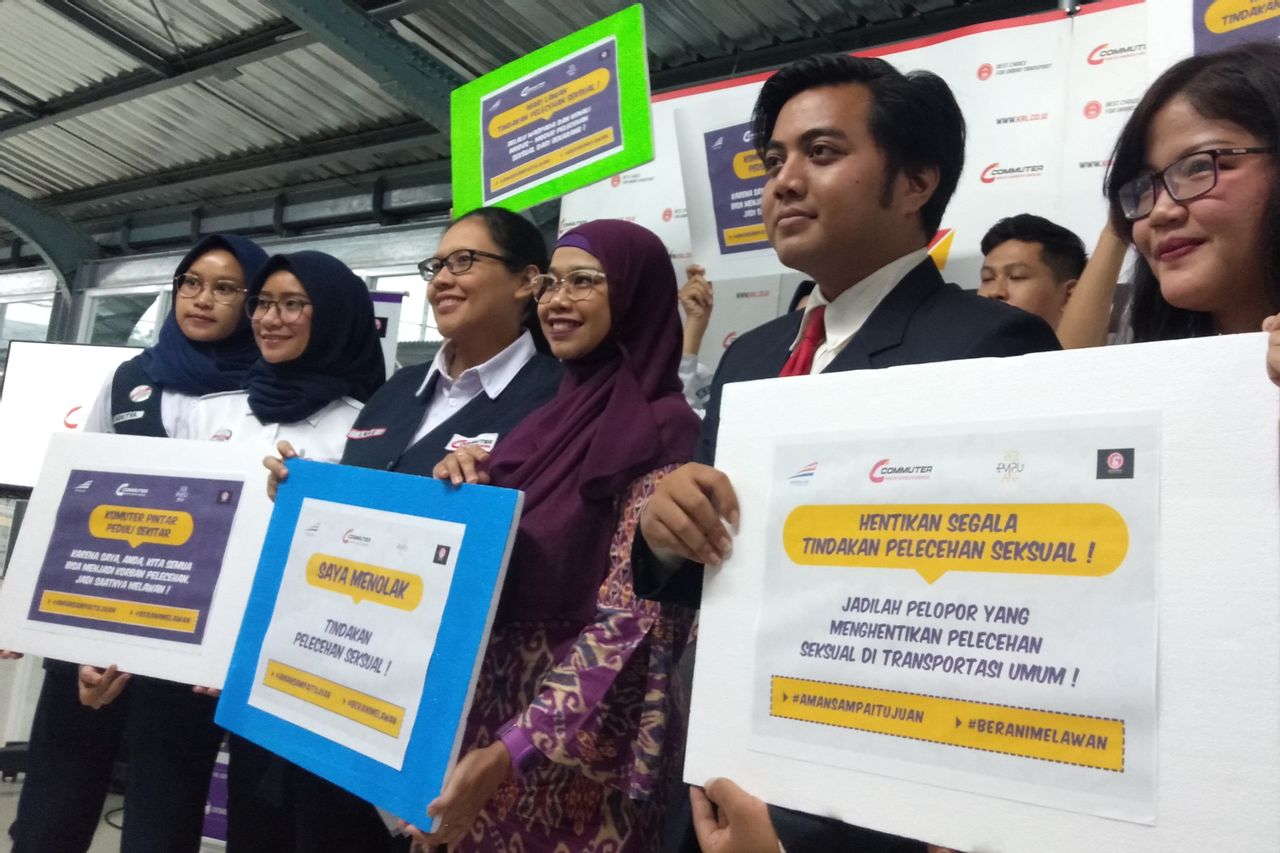Don't Be Afraid To Report Sexual Harassment Acts On Public Transportation

JAKARTA - It is undeniable that cases of sexual harassment often occur in public spaces, especially public transportation. In fact, based on the results of a survey by the AMAN Public Space Coalition (KRPA), as many as 46.80 percent of women have experienced sexual harassment on public transportation.
The founder of the PerEMPUan Community, Rika Rosvianti, explained that sexual harassment experienced by women often occurs on public transportation modes. Some of them experience verbal catcalling, body shaming to physical actions.
"Verbal harassment includes whistles, kisses, body comments, explicit sexual comments, sexist comments, and racist comments," Rika said during a discussion on preventing sexual harassment at Jakarta Kota Station, West Jakarta, Friday, December 27.
Meanwhile, he said, physical harassment is flirting, being photographed secretly, vulgar gestures, showing public masturbation or showing genitals. The most aggressive acts committed by the perpetrator of sexual harassment, can reach the victim forcibly, stalking and groping the body of the opposite sex with his genitals.
Unfortunately, most victims of sexual harassment tend not to dare to report if they experience this. Given, the victims do not have any evidence that he experienced sexual harassment.
"In fact, if the victim defends himself by slapping the perpetrator, the perpetrator can report back with evidence of the slap. So, the victim is afraid to report it," said Rika.

Then, Rika said, most victims when they experience sexual harassment, they are unable to fight back because there is a psychological effect where they feel scared and cannot move freely. So, he could not immediately record the perpetrator's actions as evidence.
"If he has already reported, at the police station, the police ask whether you are fighting or not. In fact, if the victim gets sexual violence, many of them are exposed to panic immobility, when we are harassed, we (women) tend not to be able to fight because of fear," he added he.
This was also acknowledged by the VP Corporation Communication of PT KCI Anne Purba. Anne said, KCI has provided reporting services for victims who have experienced sexual harassment at KRL.
However, in some cases, victims who reported this case to KCI even wanted to close the cases of abuse they had received. The reason is that they do not want to deal with the perpetrator and are afraid that other people will find out that they are victims.
"When a victim complained to KCI, then we asked if the victim was willing to take the case to the realm of law, they even said they asked the case to stop at the place of complaint," said Anne.
In fact, some cases of harassment have been recorded on other train users' cellphones and have gone viral on social media. As a result, many people see the victim's face on the video.
"Hence, we really ask our friends if there is a video to be reported to KCI before it is put on sale, because it is a burden for the victim," he said.
Furthermore, to minimize cases of sexual harassment on public transportation, PT Kereta Commuter Indonesia (KCI), the Women's Community, and the Anker (Anak Kereta) Twitter community are intensifying a campaign to prevent sexual harassment in public spaces in an activity entitled "Safe Transportation for All" .
The founder of AnkerTwiter, Fikri Muhammad Gazi invited fellow KRL users to increase attention to the surrounding environment, especially to fellow KRL users. By increasing awareness and awareness, users who experience sexual harassment who are helpless can be helped to get out of the situation.
"In the future, Anker Twitter wants to be more than just a community of train users. Anker Twitter hopes to become a" partner "for KCI who not only criticizes, but supports and encourages KCI to increase its response in eradicating sexual harassment in public transportation." explained Fikri.
